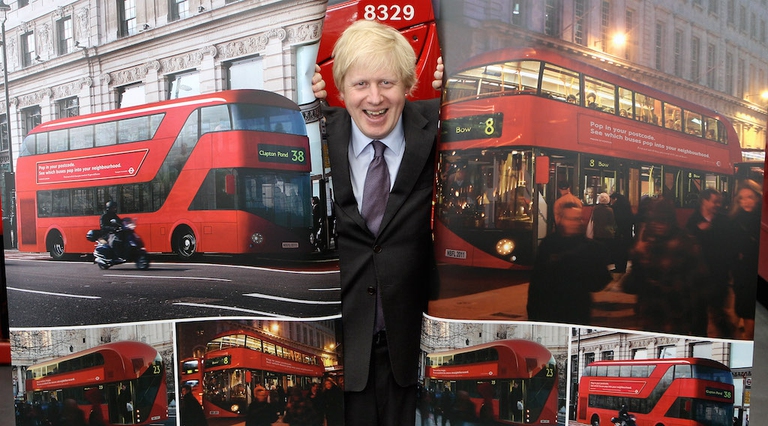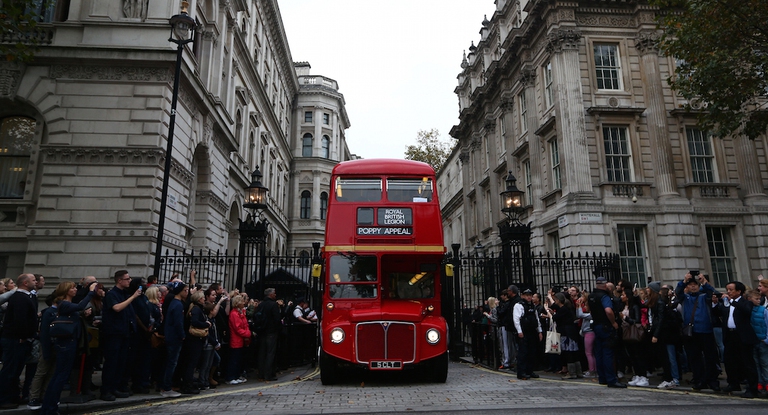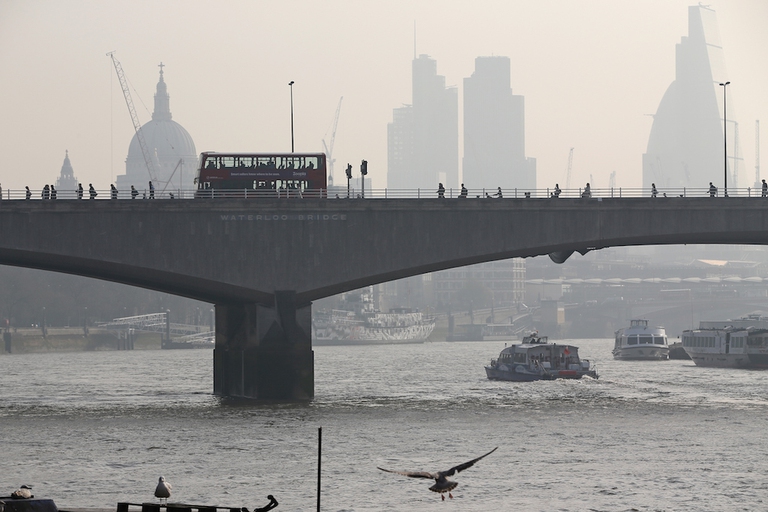London’s ultra-iconic double decker bus is going 100% electric, the city’s Mayor Boris Johnson announced earlier this week. The bus built by Chinese car and battery manufacturer BYD will enter into service from October on Route 16, travelling from northwest London to Victoria Station. It will be the world’s first purposely-designed electric double decker bus,
London’s ultra-iconic double decker bus is going 100% electric, the city’s Mayor Boris Johnson announced earlier this week. The bus built by Chinese car and battery manufacturer BYD will enter into service from October on Route 16, travelling from northwest London to Victoria Station. It will be the world’s first purposely-designed electric double decker bus, according to Transport for London (TfL), the body overseeing the metropolis’ transport system.
![Boris Johnson Unveils Final New Bus For London Designs]()
Single decker electric buses have been travelling the Capital’s streets since 2013. New Routemaster buses, futuristic redesigns of one of London’s symbols, are diesel-electric hybrid double deckers and have been in circulation since 2012. Up to now, however “Many believed that a pure electric double deck bus would not be possible due to the size of the battery packs required to power it”, a statement from the Mayor’s Office declared. Yet, BYD’s batteries are light enough to power a double decker, which, in the case of the Routemaster, weighs around 12 tonnes.
The announcement was made at the C40 Cities Climate Leadership Group’s summit, which was held at London’s City Hall. The C40 network connects 75 cities worldwide to collaborate in their efforts in reducing climate change. At this year’s summit, the tenth, 24 cities committed to putting 40,000 low-emission buses on their roads. Apart from introducing the new electric double decker bus route, the Mayor’s Office also made known that inductive charging will be tested so that the buses may recharge wirelessly when stationed over charging spots.
![London Poppy Day Aim To Raise More Than 1 Million In One Day]()
Introducing electric double deckers means reducing the city’s emissions, which are no small matter. According to recent research, London’s Oxford Street may be one of the most polluted roads globally. To tackle air contamination, the world’s first ultra-low emission zone (ULEZ) will be introduced in the megalopolis.
From September 2020 all vehicles transiting in the zone, which corresponds to the current Congestion Charging zone covering Central London, will have to comply with new European standards for the emission of nitrogen oxide (NOx) and particulate matter (PM10/PM2.5), or pay a fine. Which, given the strength of the pound sterling and London’s costliness, will hardly be chip change.
![Warnings Are Given On Air Pollution Levels Across The UK]()
The eternal British eccentric, Mayor Johnson, declared himself satisfied that, as a cyclist, he will no longer have to travel behind “throbbing, belching machines that emit their fumes like wounded war-elephants”, referring to conventional diesel-powered buses. We’re equally as ecstatic that London souvenirs of the future will feature electric double deckers instead of elephantine relics of a polluted past.
Siamo anche su WhatsApp.
Segui il canale ufficiale LifeGate per restare aggiornata, aggiornato sulle ultime notizie e sulle nostre attività.

Quest'opera è distribuita con Licenza Creative Commons Attribuzione - Non commerciale - Non opere derivate 4.0 Internazionale.











